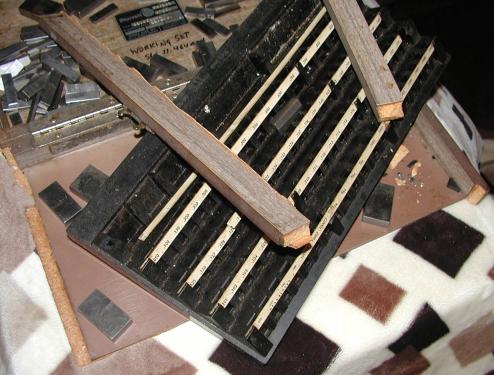03-27-2018, 10:34 PM
I've been trying to put together an 'affordable' set of gage blocks for the home shop. My first score (or so I thought) was for an almost complete set of Starret/Webber rectangular steel blocks via ebay. But the joke was on me when I got the set and found 46 of the blocks were 'other' than Starrett. 
So after having to hound the seller for several days to actually send the partial refund they promised, I put that money toward another partial set on ebay (missing several blocks) that was well used and somewhat abused to try to fill in the gaps of the first set. Low and behold, this is what I received today courtesy of the USPS.
Ahhh the joys of dealing with ebay sellers. Packing material? What's that??? Ain't nobody got time for that!
I'm not going to let them break me though. I WILL get this done. (Famous last words.)


So after having to hound the seller for several days to actually send the partial refund they promised, I put that money toward another partial set on ebay (missing several blocks) that was well used and somewhat abused to try to fill in the gaps of the first set. Low and behold, this is what I received today courtesy of the USPS.
Ahhh the joys of dealing with ebay sellers. Packing material? What's that??? Ain't nobody got time for that!

I'm not going to let them break me though. I WILL get this done. (Famous last words.)

Willie





![[Image: TomsTechLogo-Profile.png]](http://tomstechniques.com/wp-content/uploads/2013/11/TomsTechLogo-Profile.png)



